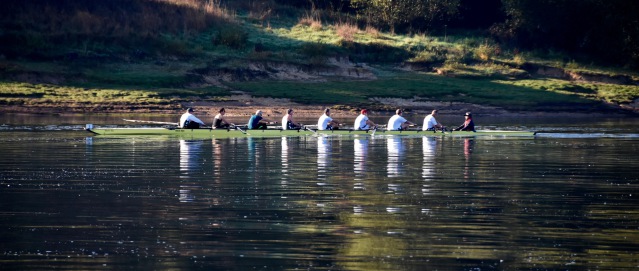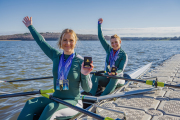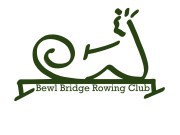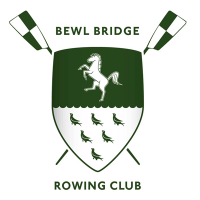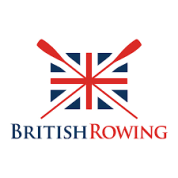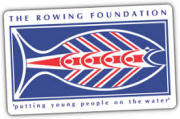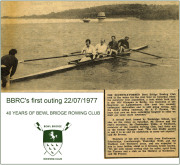
BBRC and Bewl Water Local Rules
ALL crews (including singles) MUST observe the following rules of BBRC and Bewl Water:
-
No boating is permitted before 8.30.am;
-
The Water Assessment Code must be followed;
-
Each crew MUST check that a water assessment has been made.If a water assessment hasn’t been and if no-one in the crew is able to make and record a proper assessment, the crew must not go out;
-
Boats must be off the water ½ hour before Sundown;
-
The Supervision Code must be followed;
-
All equipment must be checked before boating (particularly for heel restraints, bow balls, hatch covers and hull integrity) and the outing aborted if equipment is damaged and cannot be immediately repaired or replaced. See this British Rowing video for further guidance
-
All crews must take a VHF RADIO or a MOBILE PHONE (in a waterproof pouch) in each boat, with the appropriate Emergency Numbers. stored in the phone.This is particularly important at times other than regular Club outing times;
-
Crews should also take a whistle with them in the boat, to attract attention in the event of a capsize or other mishap;
-
No boating is permitted unless all crew members have signed out in the online google sheet sign out and in register. The individuals must record the:
-
The date;
-
All the names in your crew (PLEASE ENTER BOTH CHRISTIAN AND SURNAMES);
-
The crew’s mobile phone number;
-
The number and name of the boat (BEBxxx);
-
The configuration of the crew (e.g. 1x, 2x, 4x, 8x etc.);
-
Confirmation that a current water assessment is in place and that the crew has noted what it is;
-
The expected outing time and duration;
-
The actual time out;
-
The actual time in;
-
Alerts/Damage etc during the outing.
-
-
All coxes must wear a lifejacket or buoyancy aid on top of their clothing.
-
Between 1 November and 30 April single scullers must NOT go out alone and must be accompanied by at least one other experienced sculler. It is not enough simply to be on the water with another experienced sculler. Your must be in close contact throughout the outing. At all other times experienced Seniors are allowed to boat on their own without supervision, although it is strongly recommended that single scullers go out with at least one other person. Crews must always consider what their contingency plan is in the event of a capsize, or if assistance is required;
-
Novice or intermediate scullers or crews must always be supervised in accordance with the Supervision Code;
-
Crews must sign back in after an outing;
-
Any damage sustained during an outing or noted by a member should be noted on the signout sheet and reported to the the CWSA.
-
Defective boats or equipment must not be used – this is for crew safety and to avoid further damage;
-
Crews must report any incident or “near” incident using the British Rowing Incident Reporting System;
-
Crews must observe the circulation pattern by keeping the shore on the bow side and using only the designated crossing points. Steers/single scullers must look over their shoulder every 5 strokes to be aware of potential hazards e.g. other boats or fishermen – see this British Rowing safety video for further guidance - Collision Avoidance in Rowing
-
All solely Junior crews must remain within the buoyed area by near the pontoons until accompanied by their supervising launch;
-
Crews must minimise crossing of open water (keep close to shore);
-
At times of low water, boats coming down Bewl Straight from Rosemary Dam have priority;
-
Whenever possible stay at least 50m away from fishermen (either boated or bank), sailing race markers, or diving markers;
-
Give way to Sailing Boats and Windsurfers;
-
Be courteous to all water users;
-
Crews must stay out of areas that are Out of Bounds.These are marked by red lines on the circulation pattern:
-
The Nature Reserve at the end of Copens Reach;
-
Tinker’s Marsh and
-
Hook Straight (the whole area beyond Fish Tanks) from 31st March to 31st October;
-
-
Crews must always use common sense. Don’t go out if conditions are poor and abort an outing before it gets too rough to get back!
